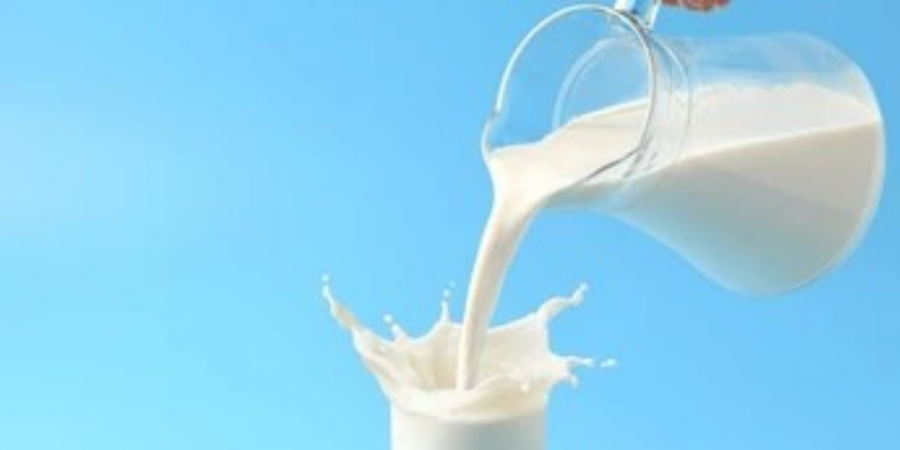

For mammals, milk is a natural dietary source. Milk is produced by all animals, including humans, to nourish their young until they are ready for solid food. Milk may provide numerous health advantages, such as promoting heart and bone health.
BONE HEALTH AND MILK
For healthy bones and teeth, muscle contraction, and nerve impulses, calcium is a necessary vitamin. Getting enough calcium is advised by health officials to help prevent osteoporosis and bone fractures.
A good source of calcium is milk. Another vitamin that helps with bone health is vitamin D, which is added to cow's milk by manufacturers.
As a 2019 review notes, while calcium is vital, there is conflicting evidence on milk's potential to prevent osteoporosis or fractures. Scientists still need to conduct additional investigation because of this disparity.
MILK AND HEART HEALTH
Potassium, which can help the blood arteries expand and lower blood pressure, is found in milk.
Blood pressure can be lowered by increasing potassium intake and decreasing sodium (salt) intake, which lowers the risk of heart disease and stroke.
Many Americans do not consume the recommended daily intake of potassium, which is 2,600 mg for women and 3,400 mg for men (Trusted Source).
In addition to milk, other foods high in potassium include:
dried apricots
potatoes, tomatoes, oranges, and lima beans
bananas with spinach
yogurt with prunes
People should consume dairy products in moderation because cow's milk also has a high concentration of cholesterol and saturated fat, both of which raise the risk of heart disease.
MILK AND CANCER
Calcium and vitamin D, two elements found in milk, may help prevent cancer.
The intestinal lining may be shielded by calcium, lowering the risk of colon or rectal cancer. Nonetheless, studies have connected prostate cancer with excessive calcium levelsTrusted Source.
Vitamin D may be involved in the control of cell proliferation. In addition to possibly preventing breast and prostate cancer, it might aid Trusted Source in preventing colon cancer. On the other hand, studies have also connected elevated vitamin D levels to a higher risk of pancreatic cancer.
The risk of cancer is influenced by numerous factors. Similar to other diseases, cancer can take a long time to manifest, making it challenging to identify risk factors and causes.
More extensive, long-term research is still required before scientists can declare anything true.
MILK AND MUSCLE BUILDING
It is natural that cow's milk could promote muscle building because it helps newborn cows grow quickly. Cow's milk has all of the essential amino acids, making it an excellent source of high-quality protein.
Saturated fat, which is abundant in whole milk, can also block the body from using muscle mass as an energy source.
The advantages of milk can be obtained with reduced fat content by using low-fat milk.
Thank you for reading my article. Keep supporting me and follow me for more updates.
